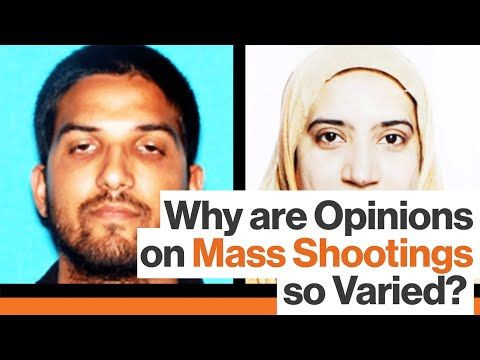A Neuroscientist Breaks Down Why We Can't Help But Argue About Mass Shootings

Wading into a discussion about the cause(s) behind mass shootings is no task for the weary.
And as neuroscientist and book author Dr. David Eagleman illustrates in the above video released by Big Think, it’s a debate that can’t help but be divisive.
“People are very different on the inside, and who you are and what you believe about the world comes as a confluence of your genetics and the environment,” explained Eagleman, who is director of the Laboratory for Perception and Action at Baylor College of Medicine. “As a result brains are all very different. They’re unique as fingerprints. So when it comes to what to do about a mass shooting, there’s no surprise that you have completely different opinions.”
While common ground can be hard enough to find, however, it’s utterly impossible if we’re unable to recognize and correct certain misconceptions about the brain and mental illness, according to Eagleman.
“People will often throw words like ‘Well, the guy’s a psycho.’ he continued, “[But] that’s a meaningless term. What the commentator presumingly means is either this person has a psychosis, something like schizophrenia where they have a disorder of cognition, or they mean this person is a psychopath, which is not a disorder of cognition.” Eagleman went on to elaborate that psychopathy, or sociopathy, simply describes someone who feels little to no empathy for others.
Mixing up these concepts can be incredibly damaging. For instance, it’s often assumed that people living with schizophrenia and other mental illnesses are more violent than the general population, yet the wide majority of sufferers aren’t violent at all, and if anything, it’s these individuals themselves who are greater risk of abuse or violence. That misunderstanding only further contributes to the stigma surrounding mental illness.
“An understanding of these things in the public dialogue I think would be very important,” concluded Eagleman. “Every time there’s a mass shooting, there are all sorts of commentators that come out and say things like, ‘Well I heard he had Asperger’s’ or ‘I heard he had ADHD’ or ‘I heard that he wrote dark poetry’ which is, of course, true of most young teenagers.”
While angsty teenage poetry may be a crime to the ear, it’s certainly not a root cause of mass shootings. That much, we should be able to agree on.



























